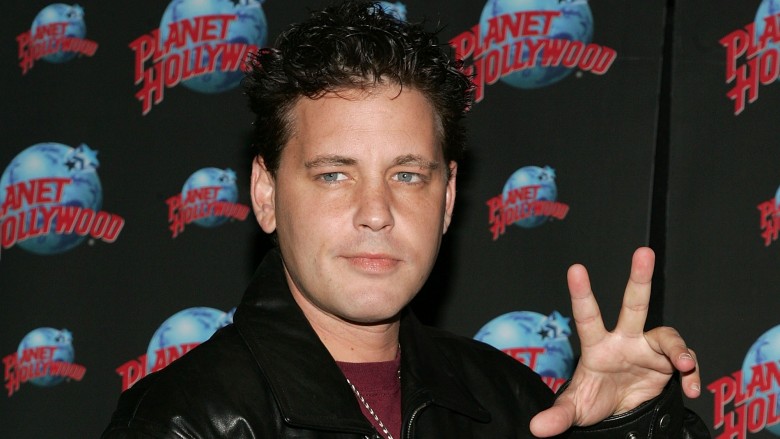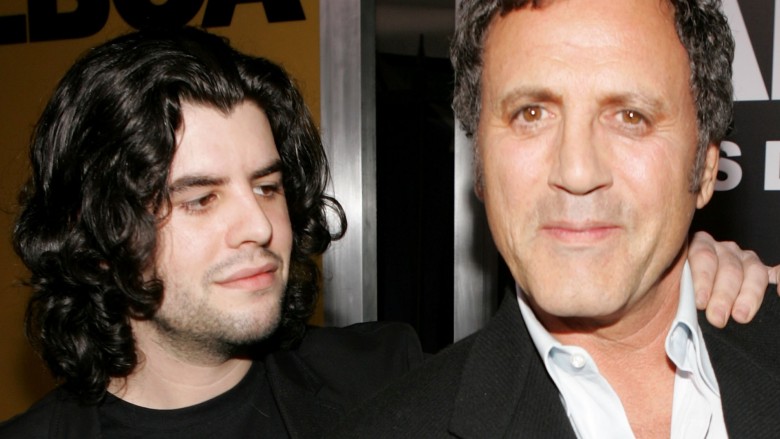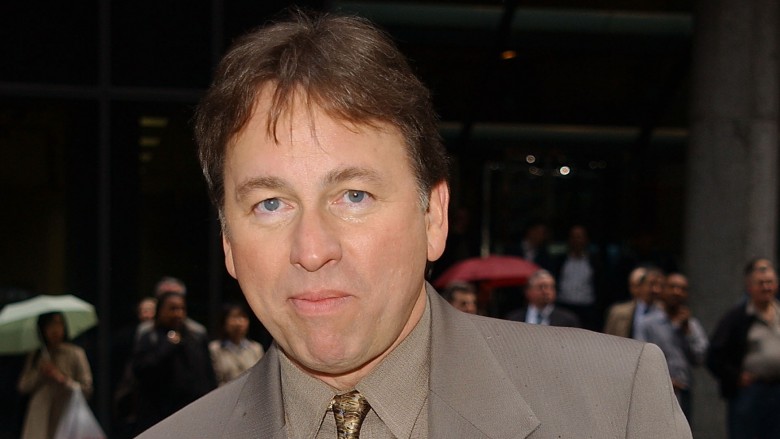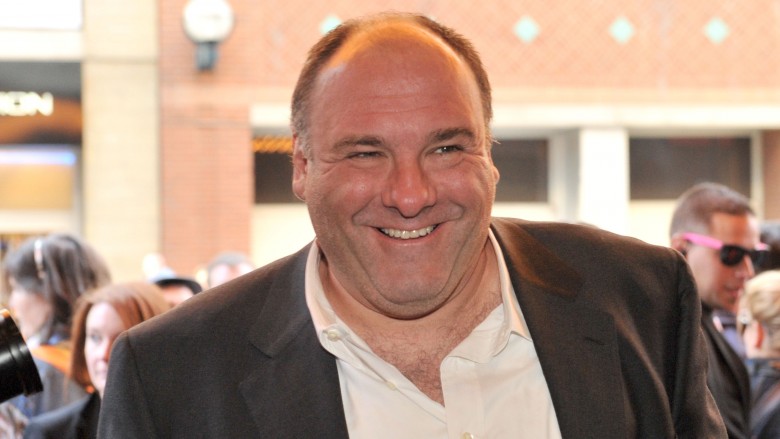What Really Killed These Celebrities
When a celebrity dies unexpectedly, especially if they're young, everyone's first thought usually goes right to drugs. And while this is sadly correct quite often, like in the case of River Phoenix, Heath Ledger, and Chris Farley, other cases are not so cut and dry.
That never stops "sources," "insiders," and "leaks" from sparking all kinds of tabloid speculation. But it's not until the coroner's report that we get a medical professional's scientific opinion on what caused the death. Does that always answer every question surrounding the demise of a star? Certainly not, but it at least gives us an idea of the time and circumstances that brought the physical end. Here is what really killed these celebrities.
George Michael
Singer George Michael was one of the last celebrities claimed by 2016's seemingly unmerciful attack on our most beloved pop icons. He was found dead on Christmas morning at home, by his long-time partner, Fadi Fawaz, and since he was only 53 years old, the rumor mill immediately kicked into overtime. "It had to be drugs! Or cancer! Or (perhaps most offensively) AIDS!" But it was exactly none of that. The final post mortem report on the "Faith" singer showed a "natural cause of death," according to CNN. But hang on a second. What exactly does "natural causes" even mean on a coroner's report?
According to Dr. David R. Fowler, president of the National Association of Medical Examiners (via Fox 2 Now), saying a cause of death is natural is simply to rule out "external causes." Basically, this just says the deceased did not commit suicide, die accidentally, or wasn't murdered. In fact, 90 percent of all deaths fall into the natural causes category, which Fowler describes as "a natural disease process — infection, cancer, heart disease, all of those things that are going to carry us off at some point along the way."
This was exactly the case with George Michael. His autopsy showed he suffered from "dilated cardiomyopathy with myocarditis and fatty liver," which in English means his heart was weakened and "unable to pump blood around the body efficiently." The causes for the disorder range from genetics to high blood pressure to alcohol abuse. So how did Michael get it? Coroner Darren Salter apparently doesn't care. He ended his statement regarding the singer's death with, "the investigation is being discontinued and there is no need for an inquest or any further inquiries." Guess that settles that.
Whitney Houston
Even though Whitney Houston was far from the pinnacle of her career when she died, nobody was expecting her pass so young, at just 48 years old. She was found in her room at the Beverly Hilton "face down in the bathtub filled with water, unresponsive," according to the LA County Coroner's report (via ABC News).
Of the many details of her salacious demise, the one that probably sparked the most rumors was the line from the initial report of the death scene that noted "the decedent possibly overdosed on a narcotic substance, prescription medications, over the counter medications, and alcohol." On the surface, it sounds like she was on a bender, passed out, and drowned in the tub, right? Well, sort of.
Although the toxicology report showed a seemingly damning mixture of "cocaine, benzoylecgonine, cocaethylene, marijuana, alprazolam (Xanax), cyclobenzaprine, (Flexeril), and diphenhydramine (Benadryl)" in her blood which would lead any normal person to think, "Yup, overdose," her cause of death is still listed as "(A) Drowning and (B) Effects of atherosclerotic heart disease and cocaine use." The coroner further clarified that "No foul play is suspected. The mode of death is accident."
On top of that, forensic toxicologist Bruce Goldberger, told ABC News that upon his examination of the toxicology, Houston was only "'acutely intoxicated from cocaine' at the time of her death and was a 'repeated cocaine user.'" So, yes, Houston's heart was diseased from years of drug use, and she was slightly under the influence when she died, but it certainly wasn't the drug-fueled binge the tabloids wanted it to be.
Bruce Lee
The mystery surrounding Bruce Lee's death have to be the most outlandish on this list, if not of all time as far as celebrity deaths are concerned. When the martial arts master died in 1973 at age 32, everything from drug overdoses to Chinese gang hits were speculated, according to The Morning Call. And of course, there was the legendary "family curse" myth that was further exacerbated when Lee's son, Brandon, died at age 28 due to a freak accident on the set of The Crow. But since it would probably cost a medical examiner their license to list "murdered by a demon who has haunted the Lee family for centuries," they went ahead and did a proper exam.
According to a scathing 1998 piece in The LA Times written by Linda Lee Cadwell, Bruce's widow, his cause of death was "cerebral edema caused by hypersensitivity to an ingredient in a prescription medication called Equagesic." She also wrote that this conclusion was the result of a "an exhaustive, nine-day coroner's inquest," and that her reason for wanting to publish the clarification 25 years after his passing was to squash the rampant and reckless rumors that still persisted. So, no, he was not "addicted to cannabis," and, no, he did not die in the arms of his mistress. And most of all, no, he didn't go out battling a mythical samurai demon who then turned his sights on his son. Sorry, Dragon: The Bruce Lee Story fans, but that wasn't a documentary.
Corey Haim
Corey Haim was extremely open about his drug addiction. He spoke candidly about it on his many reality TV appearances, and described himself as "A chronic relapser for the rest of my life," during a 2007 Larry King Live interview. So when he died in 2010, nobody was thinking anything but "overdose."
Haim's family was quick to blame The Lost Boys actor's death on poor treatment by an addiction specialist. And the LAPD told People they suspected "a possible accidental overdose." But perhaps the most premature reaction of them all came from California Attorney General, Jerry Brown, who used Haim's death as the precursor for a statewide crackdown on what he categorized as "the problem of addicts 'doctor shopping' for dangerous drugs," according to CNN. There's just one flaw with all of that. Corey Haim died from pneumonia.
When Haim's autopsy report was released around two months after his death, it stated that he "died of respiratory distress related to pneumonia with the presence of an enlarged heart and narrowing blood vessels." There were "low levels" of prescription meds and a "tiny amount of marijuana" also found in his blood, but according to Deputy Medical Examiner Juan M. Carrillo (via The LA Times), "The medications did not contribute acutely to his death, therefore the manner of death is natural." So, did the California Attorney General's office then change the focus of its task force to target water on the lungs, or does that not make for a splashy enough headline?
Brittany Murphy and Simon Monjack
Everyone was already suspicious of Brittany Murphy's death when her autopsy showed that she died of "acquired pneumonia," with "iron-deficiency anemia and multiple drug intoxication" also listed as contributing factors that weren't related to "the immediate cause of death." How could that happen? Who has ever heard of a 32-year-old, seemingly healthy person dying of pneumonia? But then her husband, Simon Monjack, also died six months later — of pneumonia — and the paranoia went into hyper-drive.
Elaborate murder/suicide plots started being tossed around. Monjack's shady history of legal problems opened the door for unfair speculation of foul play. Then there was the mold theory. According to an E! News piece on mysteries that still remain about the Clueless actress' death, there is supposedly an "environmental report" that was done on the house to test for toxic mold which some have speculated was the cause of both her and Monjack's pneumonia. Except LA County assistant chief coroner Ed Winter (via ABC News) said, "I'm not saying you can't get pneumonia from mold, but we did all the tests on it — mold did not come up in the toxicology reports."
Ultimately, the coroner's notes state that both had pneumonia with contributing factors. Murphy's was anemia and drugs and Monjack's was cardiomegaly with myocardial fibrosis (enlarged heart with thickened heart valves). So the big scandal here? Two rich and famous people who weren't in generally great health got sick and didn't seek the proper medical treatment.
Sage Stallone
When Sylvester Stallone's son, Sage, died unexpectedly at just 36 years old, once again the tabloid rumor machine lurched into motion with outlets like The New York Post running the dubious headline: "Sylvester Stallone's son found dead; cause of death believed to be pill overdose," and TMZ going with the more bold faced lie "Sylvester's Son Dies Of Overdose.'
This was all in the face of Sage's attorney, George Braunstein, giving statements like "Sage Stallone was not known for going out to clubs and partying. His vices were candy bars and soda," according to CNN. Also, the LAPD gave no indication that drugs or foul play were involved at all despite outlets repeatedly citing "sources" who said multiple empty pill bottles were found at the scene. Sylvester Stallone even issued his own heartbreaking plea to stop all "speculation and questionable reporting" about Sage's death and supposed drug use. "Sage was our first child and the center of our universe and I am humbly begging for all to have my son's memory and soul left in peace," he asked.
The coroner's report finally showed that Sage's death was due to natural causes, "attributed to a condition that causes blockage of the arteries," according to Fox News. It was rare for a 36-year-old, and certainly more rare than the well-worn story of a young star overdosing and dying. But that conclusion took months to reach, while news outlets had headlines to sell, and you can be sure people are more likely to click on "Rambo's Son Dies Popping Pills" vs. "Something Sad Happened, We'll Know More In A Few Months."
John Ritter
In 2003, long-time television star, John Ritter died from an aortic dissection, which The Mayo Clinic describes as "a serious condition in which the inner layer of the aorta, the large blood vessel branching off the heart, tears." This usually results in a rupture of the aortic wall and is "often fatal." Unfortunately for Ritter, the symptoms of aortic dissection can be misdiagnosed as a heart attack, which is exactly what happened in his case.
According to The LA Times, Ritter's doctors at Providence St. Joseph Medical Center ordered a cardiac catheterization in response to what they thought was a heart attack. During the procedure, they discovered the aortic dissection, but were unable to repair it, and Ritter died. Believing in the moment that all was done that could have been done, Ritter's wife, actress Amy Yasbeck, trusted the doctors and "no autopsy was performed."
It wasn't until time passed, and a state regulatory review of Ritter's case "faulted the hospital for lapses in care" that Yasbeck decided to sue. She filed a lawsuit for $67 million dollars against the doctor who treated Ritter the night he died, as well as a radiologist "who had performed a body scan on Ritter two years before he died," according to Today.
Many viewed the unusually large sum as an ugly cash grab in the wake of the beloved Three's Company actor's death, but Yasbeck ultimately lost the suit and clarified that her intentions were about more than just the money. She wanted the case to be high profile enough so that Ritter's many fans would learn about the dangers of aortic dissection and just how preventable it is. Through genetic testing, or even asking the right questions during a cardiac emergency, the fatal mistakes that contributed to Ritter's death can be avoided.
James Gandolfini
People love to attribute the qualities of their favorite TV and movie characters to the real-life actors who portray them. And this was particularly the case with James Gandolfini, who everyone apparently just believed acted like Tony Soprano right up until the second he died.
The Mirror was quick to categorize his alleged last meal as "a fried food feast," while The New York Post used the phrase "guzzled at least eight alcoholic drinks" in their headline. Even if all of those unconfirmed details were true, one unhealthy meal does not cause a heart attack, which is what Gandolfini's autopsy listed as his cause of death.
But even after the autopsy report came out, the speculation about what actually caused Gandolfini's heart attack didn't stop. In a blog he wrote for The Huffington Post, titled "James Gandolfini Did Not Die of Natural Causes," Neal Barnard, M.D., who had not treated Gandolfini, took a hard stance against the how his death was ruled. "The idea that a heart attack is 'natural' for a man of only 51 is a dangerous fallacy that medicine has tried very hard to dispel. A heart attack is a disease state caused by specific circumstances, and it needs to — and can — be prevented," he wrote. He goes on to cite statistics about risk factors such as poor diet and lack of exercise which are all basically guesses at Gandolfini's lifestyle and medical history. Call us crazy, but it seems pretty unprofessional for a medical doctor to diagnose a patient he's never seen. After all, would anyone have tolerated it if the cops arrested Gandolfini because he looked like a hardass and sounded just like a mafioso? Not likely.
Prince
There are still many mysteries surrounding the death of the brilliant and innovative artist, Prince. But from the moment his death at age 57 was announced, the drug abuse rumors started to fly. Outspoken KISS frontman, Gene Simmons famously told Newsweek, "His drugs killed him. What do you think, he died from a cold?" Which while somewhat true, was as insensitive as it was uninformed since Prince actually had been quite sick just two months earlier, and required a plane to make an emergency landing so he could get treatment.
When the initial autopsy report for the artist who was so cool he once changed his name to a symbol came out, it mentioned nothing of drugs and was pending further toxicology reports. It wasn't until the county sheriff who was investigating Prince's death called in the DEA for assistance that the genie was truly let out of the bottle.
While we now know from the extremely succinct, single-page autopsy report that Prince died from "Fentanyl toxicity," we have no idea why he was using the incredible powerful painkiller that is generally reserved for "heart surgeries and late-stage cancer victims," according to Digital Music News. The report also fails to mention any additional medications he may have been on, and lists other significant conditions as "n/a" which we assume to mean "not applicable."
Most of the autopsy reports for the other celebs on this list ran in excess of forty pages and included complete physiological, toxicological, and evidentiary examinations. But in Prince's home state of Minnesota, all state law requires is the release of "manner and cause of death." But Prince probably would have wanted to go out shrouded in the same kind of mystery with which he lived his whole life. So, something tell us The Purple One doesn't mind a little accidentally state-assisted bureaucratic secrecy.
Joan Rivers
Despite the fact that she was 81, no one expected Joan Rivers to have any complications from the routine throat procedure she had scheduled for August 28, 2014 at Yorkville Endoscopy in New York City. But days later, she died after "suffering respiratory and cardiac arrest during surgery," according to The Hollywood Reporter. And while tragic, that doesn't sound wildly unreasonable since there is a risk of those complications for anyone, at any age, with any surgery. But that's not even close to the whole story.
After the NYC Medical Examiner's office issued their official findings in the investigation into Rivers' death, citing a long list of terminology that reads like a med school textbook, they clarified with, "The classification of a death as a therapeutic complication means that the death resulted from a predictable complication of medical therapy." The simple version of that is she died from lack of oxygen to her brain, and the even simpler version is somebody probably screwed up her procedure big time.
Needless to say, Rivers' daughter, Melissa, filed a wrongful death suit against Yorkville Endoscopy and the doctors that conducted her mother's allegedly botched procedure, including an allegation that one of them took pictures of Joan while she was unconscious on the operating table. A settlement was quickly reached for an undisclosed amount, and Melissa issued a statement that read, in part, "I will work towards ensuring higher safety standards in out-patient surgical clinics." There's no word on how that pledge is going, but TMZ reported the settlement as in the eight figure range, so at least Joan can rest easy, wherever she is, knowing she got the last laugh on that.











